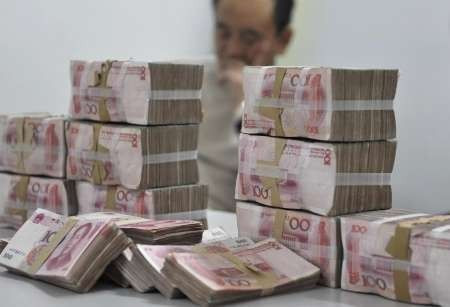Moody's upgrades China's 3 big banks, government bond rating to Aa3

Moody's Investor Service upgraded China's 3 big policy banks and Chinese government's bond rating to Aa3 from A1.
The resilient performance of the Chinese economy following the onset of the global financial crisis and expectations of continued strong growth and macroeconomic stability in the medium term is the main rationale behind the upgrade for the bonds, the agency said.
Other factors such as the government's quick and effective stimulus program, the lack of erosion in the government's financial credit fundamentals and exceptional strength of the external payments position which provides a substantial buffer to global financial market turbulence also contributed to the upgrade.
The expectation that trade and currency regime tensions will be constructively managed between Chin and the U.S., was also one of the contributing factors.
China and the U.S. have been involved in a tug-of-war regarding currency rates as the former is pressuring China's policy makers to let the Chinese yuan appreciate. Though the yuan had appreciated marginally over the last month, the policy makers guided it lower again last week after the U.S. Federal Reserve announced a second round of quantitative easing.
Several emerging nations, including China, criticized the move, stating that it would further imbalance the global markets, as well as drive the U.S. dollar lower.
However, just before the G20 Summit, where the currency is expected to be a major topic of discussion, China and U.S. called a truce to some fights.
U.S. Treasury Secretary Timothy Geithner withdrew his demand for member countries to reduce their economic imbalances to less than 4 percent of their output - a demand that was seen as mainly targeting China's massive trade surplus.
On Wednesday, China reported a surge in October trade surplus to $27.1 billion while the U.S. reported a slight narrowing on trade deficit in September to $44 billion. However, U.S. trade deficit with China remained high and a cause for concern.
Economists expect more pressure on China at the Summit regarding its currency valuation.
China also reported a massive spike in consumer price inflation during the month of October at 4.4 percent.
However, Moody's, that changed its outlook on China to positive from stable on Nov. 9, said inflation is a concern but remains moderate and the People's Bank of China has taken tightening measures in normalizing monetary policy.
The re-balancing of the Chinese economy emphasizing domestic consumption and a somewhat tempered rate of economic growth, if sustained, will also help ensure long-run macroeconomic stability, the ratings agency stated.
Moody's expects private consumption to increase with a more rapid raise in wages in the future.
The shift in growth policy is a plank of the upcoming 12th Five-Year Plan, and we expect that the next generation of leadership, when it assumes power in 2012, will follow this economic script, Moody's said.
The agency expects the budget deficit to be contained within 3 percent of GDP this year and the next, while robust revenue growth eclipses the nominal GDP growth.
Direct government debt will likely remain below or around 20 percent of the GDP this year and the next, Moody's added.
Separately, the rating agency stated that the upgrade to the ratings of China Development Bank, Export-Import Bank of China and Agricultural Development Bank of China, which have a positive outlook, is following the decision to upgrade China's long-term foreign currency sovereign rating.
The action reflects Moody's view that the banks will continue to receive full support from the government as 100 percent state-owned bank, it said.
The government's attempts to initiate reforms to operate the banks on commercial interest, state ownership in these entities is not expected to change during Moody's rating horizon, the agency added.
© Copyright IBTimes 2024. All rights reserved.





















